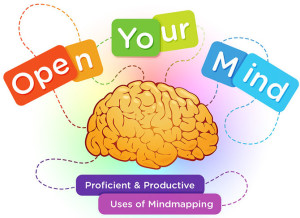Formulas for Successful Articles by Melinda Copp
 If you’ve chosen your article topic, you may feel ready to write. But wait! You need more than a topic to make your article great. You need an angle, or an approach, that presents your topic in a new and interesting way. Before you dive in and start writing, take a minute to consider how you’re going to make your article topic interesting. How can you entice the people in your market to read?
If you’ve chosen your article topic, you may feel ready to write. But wait! You need more than a topic to make your article great. You need an angle, or an approach, that presents your topic in a new and interesting way. Before you dive in and start writing, take a minute to consider how you’re going to make your article topic interesting. How can you entice the people in your market to read?
To turn your topic into a compelling article, consider the following ten formulas for success.
-
The List of Tips. Lists are easy to write because all you need is a short introduction and conclusion, and then two or three sentences for each tip. And this type of article naturally entices people to read because people love numbers, tips are quick, and, from a reader’s perspective, they’re bound to learn something new about a topic that interests them. For example, “21 Tips for Losing Weight This Holiday,” and “10 Ways to De-clutter Your E-mail.”
-
The How-to Article. This type of article leads readers through a series of steps that ultimately lead them to a solution that makes their life easier in some way. For example, “How to Get Started on Twitter,” and “How to Raise Happier Kids.” When using this formula for your articles, think about what expertise you have to share and what result you want your readers to get, and then break the process down into smaller steps that your readers can easily follow.
-
The Must-Ask Questions. If you want to intercept your reader right before they make a decision, consider using this formula. For example, “Three Questions You Must Ask Before Selling Your Home,” and “Five Questions You Must Ask Before Hiring a Life Coach.” This approach helps your readers make informed decisions, hopefully about contacting you!
-
The Case Study. For this type of article, you raise a compelling question that’s on your ideal reader’s mind and use real-life examples to answer it. For example, “Should You Invest in Mutual Funds?” Then you can present anecdotes of people in slightly different situations who did invest in mutual funds and the results they got. When planning your examples, try to cover different segments of your ideal readers, or different situations they might be facing so your readers can envision different outcomes.
-
New Research Findings. New studies and research are presented by organizations and the government almost every day, and if you do a little hunting online you can probably find a recent study that affects people in your market and base an article around the results. For example, “The Economy Forces 10 Percent of Children Over 35 to Move Home,” could be the basis for an article about how to transition from an empty nest to having an adult child at home.
-
The Trend Investigation. What’s the latest craze in your field? What are people talking about? If you can find something exciting and trendy, you can write about how the trend started, why it’s catching on, the benefits, and the potential drawbacks. For example, social media is a very exciting trend on the internet and articles are popping up all over the place about Twitter, Facebook, and all things web 2.0. What emerging trends can you explain for your readers?
-
The “Straw Man” Argument. This formula works well for articles that address controversial topics. You start by setting up a premise that sounds exciting, and then counter it with evidence that pulls the argument apart. For example, “Is Soy the New Miracle Food?” The title excites readers because it sounds like the next greatest health food has been discovered, but point by point you show that soy has adverse affects on health.
-
Interview with an Expert. You’ve undoubtedly read interviews in magazines and newspapers before–why not interview an expert in your industry about a topic concerning your readers? This is a great way to explore aspects of your field where you aren’t the go-to expert. For example, if you’re a nutritionist and your readers are interested in losing weight, you could interview a fitness expert or personal trainer.
-
The Lessons Learned Article. This is a great approach to writing about events and seminars you’ve attended, such as “Networking Lessons Learned from the Writing Conference.” And if you want to have a little fun, you can use the lessons-learned article formula to attach to celebrity trends, which people always love, such as “Comeback Lessons from Brittany Spears.”
-
The Editorial. Just like the opinion pieces you read in your local newspaper, the editorial communicates your thoughts on a particular issue or something that’s recently happened in the news. If a recent event has affected your industry or upcoming legislation will change the way people in your field have to do business, why not flex your persuasive writing skills by weighing in with an editorial piece? The only requirement for writing this type of article is that you have an opinion.
The next time you need a fresh twist on your article topic, pull out this list and choose a formula for success!
© The Writer’s Sherpa, LLC | Melinda Copp | founder and executive editor
The Writer’s Sherpa | Helping experts write their way to the peak of success.
P.O. Box 3673 | Bluffton, SC 29910 | Phone: (843) 298-4757 | Fax: (843) 815-5434
Twitter: http://www.twitter.com/melindacopp
LinkedIn: http://www.linkedin.com/in/melindacopp
 And to help you generate those ideas for your next writing project you will want to access the teleseminar Proficient & Productive Use of Mindmapping Open Your Mind! which is available for immediate download and listening.
And to help you generate those ideas for your next writing project you will want to access the teleseminar Proficient & Productive Use of Mindmapping Open Your Mind! which is available for immediate download and listening.




